Dealing With One of the Most Dangerous Elements of Seamanship.

We were just a few hours out of London, in the notorious Dover Straits on my first trip to sea at the age of 16, when we collided with another ship in thick fog. It was only a glancing blow so we were able to carry on with our voyage, but it was a lesson about the dangers of fog. At sea, things can happen unexpectedly, and you realize just how your world changes when visibility drops to zero.
That was before the days of electronics. We had no radar, no GPS, and no AIS, so it was a bit like navigating with a stick and we had to rely on listening and locating fog signals. Modern electronics have made a huge difference to navigating in these conditions. They give you confidence to keep going when you can’t see ahead, and you tend to rely on them totally, which is where the danger lies. GPS positioning on the chart plotter can give you a lot of confidence that you know where you are, but radar and AIS have their limitations when it comes to collision avoidance in fog, and cannot be trusted implicitly to detect everything that is around you.
TRUST YOUR SENSES
With two displays in the pilothouse—one showing the radar and one the electronic chart—you are likely to be focussing on these screens rather than looking out of the windows. In theory, these two displays show you everything you need to know, so why bother with keeping a visual lookout? The problem is that you cannot be sure that the radar will show everything that is moving on the water, particularly if there is a sea running. That is when the radar will pick up the returns from the waves as well as those from small boats and the small-boat returns can get lost in the sea clutter.
This story is from the January/February 2017 edition of Passage Maker.
Start your 7-day Magzter GOLD free trial to access thousands of curated premium stories, and 9,000+ magazines and newspapers.
Already a subscriber ? Sign In
This story is from the January/February 2017 edition of Passage Maker.
Start your 7-day Magzter GOLD free trial to access thousands of curated premium stories, and 9,000+ magazines and newspapers.
Already a subscriber? Sign In
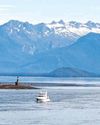
Nord2AK: Nordhavn's 2016 Rendezvous
The seeds were planted in 2012. We had been cruising for several weeks in the remote waters of northern British Columbia, where it isn’t unusual to go for several days without seeing another boat. Then surprisingly, two other Nordhavns sailed into Sea Otter Cove where we were anchored on the west side of Vancouver Island.
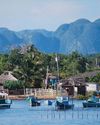
Cuban Sojourn
The second part of a journey along Cuba’s northern coast.

Shop Talk
Daniel Harper Q&A Founder & CEO of Siren Marine talks with us about how marine products are beginning to take advantage of onboard data.
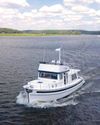
Bye, Bye, Birdie #5
The Need for Speed
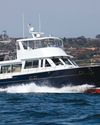
On The Water Duffield 58
It’s not every day that a brand-new 58-foot performance trawler appears on the marketplace radar, but that seems to have happened with the debut of the Duffield 58 Motoryacht.
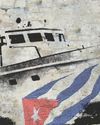
Castro's Mystery Motoryacht
Gianma and the voyage that changed the world.

Bye, Bye, Birdie #6
A Star to Steer Her By.
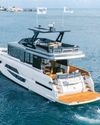
Glass Living
Testing the Modern and Versatile Okean 50.
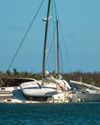
Navionics Spearheads Post-Irma Re-Mapping Effort
Boaters Can Contribute Cartography And Debris/Wreck Locations.
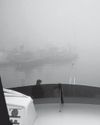
Coping With Fog
Dealing With One of the Most Dangerous Elements of Seamanship.